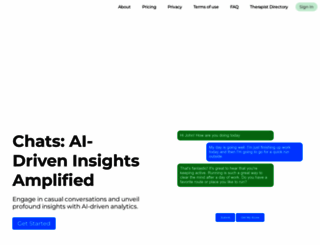Psychology.com
Page Load Speed
676 ms in total
First Response
128 ms
Resources Loaded
417 ms
Page Rendered
131 ms

About Website
Visit psychology.com now to see the best up-to-date Psychology content for United States and also check out these interesting facts you probably never knew about psychology.com
Visit psychology.comKey Findings
We analyzed Psychology.com page load time and found that the first response time was 128 ms and then it took 548 ms to load all DOM resources and completely render a web page. This is quite a good result, as only 10% of websites can load faster.